
Last week, Adriana Smith, a brain-dead woman whose decomposing body was kept alive so her baby could be born, was finally taken off life support. The newborn, named Chance, weighed just 1 lb 13oz.
It was a case that has shocked those already repulsed by the controversial reversal of Roe vs Wade in the US, a move that has already resulted in women dying after being denied life-saving care.
Georgia's state laws prohibit abortiononce a foetal heartbeat is detected, at approximately six weeks of gestation. Adriana had been eight weeks pregnant when she was declared brain dead, meaning her family was denied the dignity of saying goodbye on their own terms.
But could we see such horror stories unfolding in the UK in the not-too-distant future? Advanced practice development nurse Kendall Robbins, who deals with the realities of terminations on a daily basis, thinks not.
READ MORE: Brain dead woman's 2lb baby faces 'tough start' as doctors prepare to switch off mum's life support
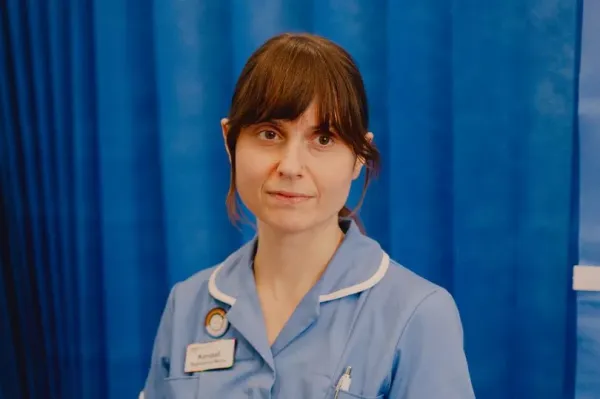
Originally from the US, Kendall now works at the MSI Choices Central London Abortion and Vasectomy Clinic, where staff predominantly perform medical abortions, as well as offering services relating to vasectomies and contraception.
The 37-year-old previously worked in the field of international cultural relations. Her interest in healthcare inequalities, informed by her work overseas helping vulnerable women, ultimately prompted her to pursue a different career path.
In an interview with the Mirror, Kendall welcomed the recent historic amendment that will decriminalise women who end their own pregnancies. In the past three years, six women have appeared before an English court, charged with ending or attempting to end their pregnancy illegally.
Noting that those affected tend to be "very vulnerable for various reasons", Kendall said: "I thought it was a scary thing to see the rise in prosecutions that were happening where you had people being investigated for their stillbirths. That's a horrible thing. Imagine having a stillbirth and then having the police question you.
"And we had instances of literally police appearing at people's bedside where they have potentially miscarried. I think removing that fear is really important because these are issues that need to be between a person and their health care provider."
However, those in the field haven't always felt so positive. Before Safe Buffer Zones were introduced last autumn, workers and patients alike were left vulnerable to harassment from hostile protestors who would gather outside clinics.
With the rise of anti-abortion sentiments in the US, this particular strain of zealous thought had crept over to British shores. This had frightening consequences for Kendall and her colleagues, who'd noticed a "rise" in more frequent protesters gathering outside the clinic in support of their 40 Days for Life campaign.
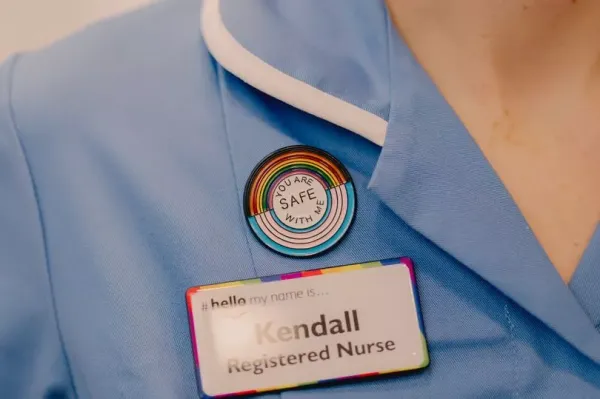
Kendall recalled: "They were quite a negative presence. It would tend to be men or sometimes women, but you know, it's the same group of people. And they might be doing things like silent prayer, but they might also be singing. And handing out pamphlets with this information, and sometimes actively blocking people from the clinic or harassing staff, using name-calling, that sort of thing."
This was particularly difficult when speaking with clients in street-facing rooms, where they might have to keep windows open. The protestors' singing would be audible as personal details were discussed, while the group may even be visible to the patient over the nurse's shoulder.
There were occasions during fire drills or team meetings where staff members had to put up with protestors branding them "murderers" as they stepped outside. Kendall remembers one man in particular whom she "had a bit of a stare down with", who "loved to stand outside the door and make eye contact",
Chillingly, there were also instances where staff who left the clinic early were followed down the road by these individuals - an eerie reminder of US counterparts who've faced violence and even assassination for providing abortion care.
As explained by Kendall, this sort of "invasive" behaviour also took its toll on patients, some of whom had to deal with being photographed. This was particularly dangerous for more vulnerable women at risk of domestic abuse or honour-based violence, while infringing on privacy in a stigmatising way that arguably wouldn't happen with any other medical procedure.
After the passing of the Safe Buffer Zone legislation, it is now illegal for anyone to do anything to intentionally or recklessly influence a person's decision to use abortion services, obstruct them, or cause harassment or distress to anyone using or working at such clinics. Applicable within a 150-metre radius of the service provider, those found guilty of breaking the law will face unlimited fines.
Thankfully, Kendall hasn't witnessed this sort of harassment since the Safe Buffer Zones were introduced. Nowadays, the staff at MSI Choices can concentrate on providing "equitable, nonjudgmental, and supportive care", a service that can include everything from addressing safeguarding issues to offering contraception counselling.
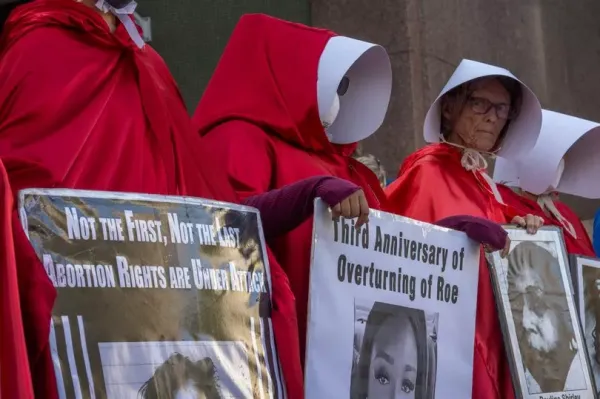
At the Central London branch, staff specialise in early medical abortions, whereby tablets are used instead of surgical abortions, which they wouldn't have the room for.
Shedding some light on her day-to-day routine, Kendall, who is "passionate" about her work, shared: "My day-to-day would be normally running a list of people coming in to seek early medical abortions or having a pre-assessment for a surgical abortion.
[...] "When a person makes contact with us, they can self-refer. So they can literally log in online, call us, chat features, all these different things. And the first step that they have when they make contact is to arrange what's called a consultation appointment, where we gather all of their medical history. So basically, someone is initially assessed in all that way, and that's usually done over the phone. Sometimes it's done face-to-face because someone needs an interpreter. And when we gather all that medical information, that's kind of the first step in guiding their care."
At this point, the patient would be screened to check if they'd be eligible for telemedicine, meaning they can take pills at home without needing to attend a clinic. Kendall continued: "So we would screen their risk of ectopic pregnancy, and we would also screen to check that their last menstrual period was a reliable estimate for their gestation, and if there are any concerns about that.
"So then they kind of get the choice. They can either have, if they're eligible for it, a telemedicine appointment, which would then be done over the phone. At any point in time, the nurse delivering that telemedical appointment can change their mind, or the doctors, and say they need a scan.
"Or they can choose to come in to have a face-to-face appointment with me, another nurse, or they might need to come and have that scan."
On a "typical day", Kendall would usually see around 12 patients. She shared: "In each appointment, we'd be reviewing their medical history, we would be doing an ultrasound scan, which would be to confirm the gestation. And it's really important to us that people always have the choice about that, whether they see the scan, know about the scan. And they also have the option to know nothing.
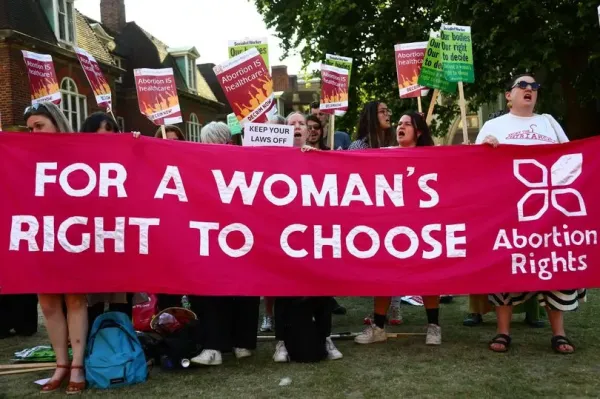
"It's up to the person what that experience would be like for them. We also do really, really rigorous safeguarding, which is very, very important because pregnant women are at a significant risk for femicide, more than the general population, and are vulnerable to other types of abuse. So if we can identify any of those things, we can put support in place."
A lesser-known part of Kendall's job involved making referrals to GPs, social services, charities and other healthcare providers, depending on the needs of the individual, as well as offering further testing. The final part of the appointment would see Kendall going through the medications with the patient in detail. She clarified: "They can take everything home if they want to or they can pick the first pill with me basically."
According to Kendall, it's a common misconception that the majority of those who walk through the doors of the clinic are young girls. However, more than half are already mothers. Kendall told us: "It's a really big family planning decision, so sometimes you're having those conversations with people who are in these situations where they say 'This is something that's really detrimental to my other children for various reasons', or they're just not in the kind of life situation where they feel they can provide."
All those who come through the clinic are offered a raft of support from counsellors and psychologists, as well as support from doctors if additional medical advice is needed. Naturally, and as with any line of healthcare work, providing abortion care comes with its own set of challenges.
Kendall will talk with women from all sorts of complex situations, and this may well be the first time they've opened up about their issues to a healthcare provider. Kendall also faces preparing patients for the physical realities of the procedure itself, which, while safe, can also be "very painful".
Of course, there are the usual challenges faced by so many nurses in 21st-century Britain, from pressures to time constraints. As Kendall noted, "You always want more time to spend with people to make sure that they have everything they need, that they're going home and feeling confident about what they're doing, and in terms of actually taking the medication to feel that they understand the whole system."
But then you factor in that this is a procedure many will have not had much time to plan for, with life often "getting in the way" at every turn. Kendall explained: "This isn't the kind of appointment that someone has booked in for weeks and weeks and weeks. Life gets in the way. And so we do get people who arrive late because of train travel if they've come from afar, or child care issues, that's a big one that we get. We just try to make sure that we can see everybody as soon as they want to be seen."
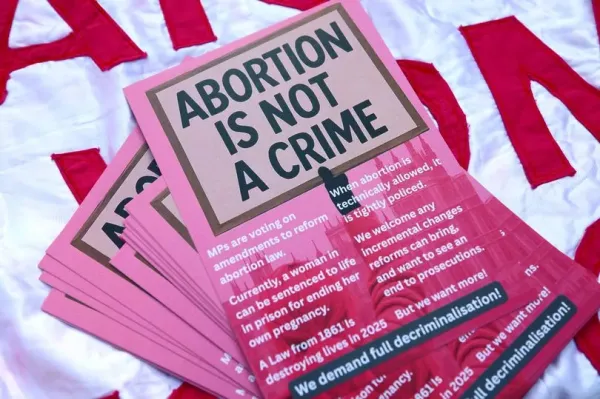
Like many women, Kendall knows through her own personal experiences just how important this line of healthcare is, but all too often, abortion care remains a taboo subject. She believes this lingering stigmatisation can be tackled by people, including high-profile figures and celebrities, sharing their personal stories.
Although the nature of her work may seem heavy, Kendall has found many moments of positivity in her career so far. She revealed: "One of my favourite pieces of feedback I ever had was when I first started out and the patient left a note to say, 'I really appreciated that the nurse somehow made me laugh in what was like a really difficult situation for myself'. She just talked about how she went away and felt really satisfied with the experience. She felt supported, didn't feel alone in that situation, and she felt confident about what had happened."
Kendall also derives satisfaction from times when, during challenging safeguarding situations, when she's implemented much-needed support for an individual, "and maybe helped them to get out of, or to take a step to get out". She reflected: "There have been some horrible stories in the news recently about some really upsetting cases of femicide. I think knowing that maybe you play your role in preventing something like that by escalating those referrals."
Under the Global Gag Rule, organisations such as MSI are prohibited from receiving US government funding as they provide abortion services, slashing access to services such as family planning and maternity centres in a campaign Kendall fears will "result in deaths of millions of people"
However, ultimately, Kendall holds out hope that the world is "continuing to move in the right direction" on this front. Polls show that British people overwhelmingly are not represented by those who walk in the March for Life protests - an annual US-funded anti-choice event, set to take place again this September.
Furthermore, as noted by Kendall, there have been signs of progress elsewhere in the world, with more than 60 countries and territories having liberalised their abortion legislation over the past 30 years. Out of these, as per the International Planned Parenthood Federation (IPPF), just four, including the US, have regressed.
As an American who regularly hears concerning stories about abortion legislation from back home, Kendall is "proud to be a part of ensuring" women's access to essential healthcare. She said: "It's nice to work in a clinic that's dedicated to doing this because it just means that like everyone that's working here has got like-minded, that you know that hopefully people coming in feel that and feel like it's a non-judgmental space and that they're here with a nurse who wants to support them."
Do you have a story to share? Email me at julia.banim@reachplc.com
READ MORE: MPs back major abortion law change to decriminalise women - see how your MP voted